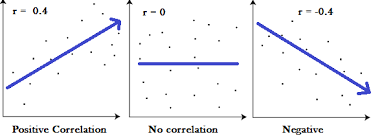Diets Work
People will say “diets don’t work” but what they probably mean is I went on a fad diet and it didn’t work out for me. If we define “work” as weight loss then diets will work if they induce a caloric deficit.
However, if “work” is defined as long-term weight loss management committing to a fad dieting approach most likely won’t work. BUT long term weight loss management IS possible. We also have to define diets, there is a difference between a short-term fad dieting approach and a tailored lifestyle intervention.
The best indication of this from an experimental perspective is the Look AHEAD trial. After an 8 year period, more than 40% of participants were able to keep off 5 percent or more of their initial weight loss. This is pretty impressive considering people state “95% of diets fail” without any evidence.
Even small amounts of sustainable weight loss can have clinical significance. A big predictive factor for the success of those in the look AHEAD trial and other similar trials is social/professional support. Participants who met more with the lifestyle counseling provided by the researchers were more likely to keep off the weight. Maybe we need to be supportive of those suffering from obesity.
If we define diets working in terms of weight loss and long-term weight loss then they are indeed “successful” but the context matters. Committing to a short-term approach based on a fad most likely will lead to weight regain thus “failure”. On the flip side, an approach tailored to your needs with appropriate support will most likely work.
Weight Has A Bearing On Health
I keep hearing this trope of “weight has no bearing on health” and “it’s not obesity it’s weight stigma”. Neither of these claims is remotely true. Having a high amount of weight is correlated with having a high amount of body fat.⠀⠀⠀⠀⠀⠀⠀⠀
If you have a high amount of body fat this can be problematic for your health especially if it’s by the abdominal area. So weight DOES have a bearing on health because those with a higher weight are most likely not elite bodybuilders with over 300lb of muscle. The average person with a high BMI is typically going to have a high amount of body fat and the distribution of the fat matters.
⠀⠀⠀⠀⠀⠀⠀⠀⠀⠀⠀⠀⠀⠀
Obesity is a disease in its own right with its own pathogenesis. It’s associated with decreased productivity at work and increased health care costs. Obesity is associated with 18 co-morbid diseases including many forms of cancer, CVD, type two diabetes, asthma, and osteoarthritis. This is troubling as obesity rates worldwide have practically doubled since the 1980s.⠀⠀⠀⠀⠀⠀⠀⠀⠀⠀⠀⠀⠀⠀⠀⠀⠀
So yes weight does have a bearing on health to some extent and the evidence for “weight stigma/fatphobia” would actually have to outweigh the evidence for obesity itself being a health detriment. This is something that hasn’t been the case as of now. Obesity is a disease, plain and simple.
Correlations and Causations
Much of the data on this topic is based on observational research, this leads to the classic rebuttal, “correlation doesn’t equal causation”. While yes correlations do not equal to causation, we can infer causality from multiple converging lines of evidence. The converging lines of evidence support the direct link between cardiometabolic disease and obesity.
Professor Roy Taylor came up with the twin cycle hypothesis of type two diabetes. In a nutshell, this hypothesis states excessive adipose tissue in the abdominal area can impair pancreas and liver function thus leading to type two diabetes. Without getting too much into the etiology of type two diabetes it’s imperative to know beta cells in the pancreas are impaired. The only treatment that is shown to reverse this impairment is weight loss.
Dr. Taylor’s hypothesis is further validated in the DIRECT trial. People were able to reverse their type two diabetes with weight loss alone. If this doesn’t speak of the causal relationship between type two diabetes and obesity, I don’t know what will.
Weight loss itself is also evident in lowering LDL cholesterol. LDL is a causative risk factor for atherosclerosis. Lowering LDL is imperative for decreasing further cardiometabolic risk.
There is also evidence for weight loss lowering blood pressure and risk of hypertension. This is another essential risk factor for cardiometabolic health. So there is intervention data in convergence with the observational data showcasing the health risk of obesity. We need to stop looking at the evidence hierarchy in such a rigid way and start looking at the total body of evidence.
Conclusion
Diets can work, weight is related to health, and there are multiple converging lines of evidence for the health risk obesity possess. HAES extremists don’t understand science or nuance.
This isn’t me stating everyone should lose weight or go on a diet. This is me stating the claims “diets don’t work”, “obesity isn’t related to health”, and “it’s all associative data” are poor claims to be made. The actual evidence supports the more nuanced view that weight does matter and shouldn’t be ignored but it isn’t the only factor to consider for one’s health.







